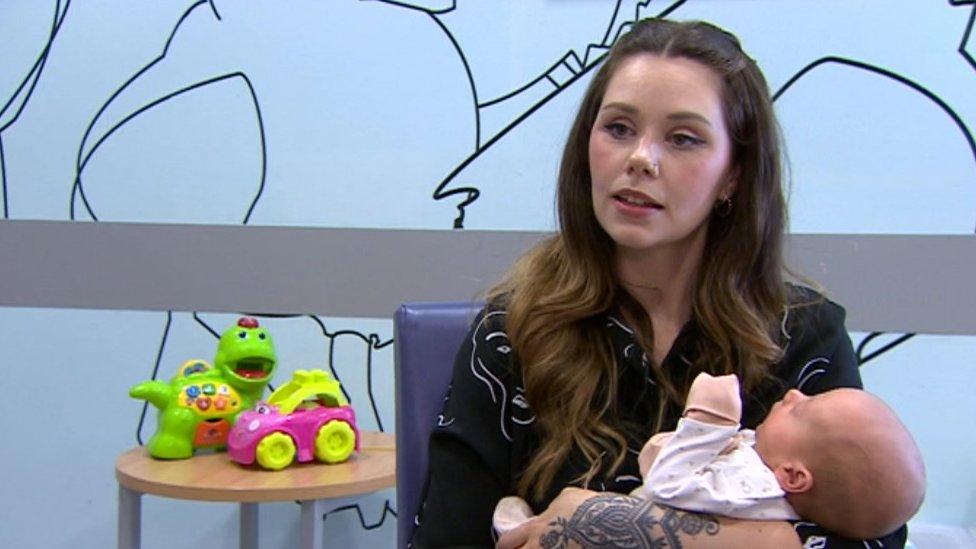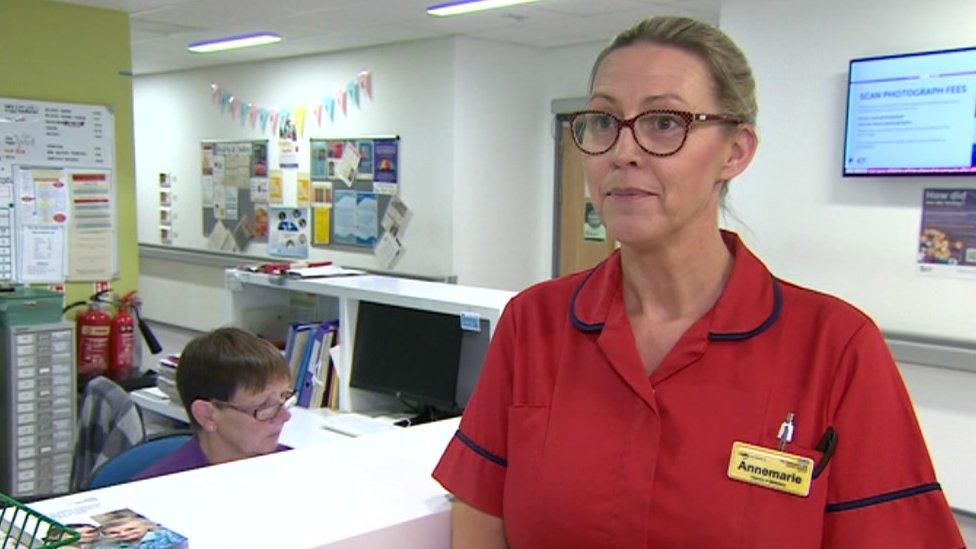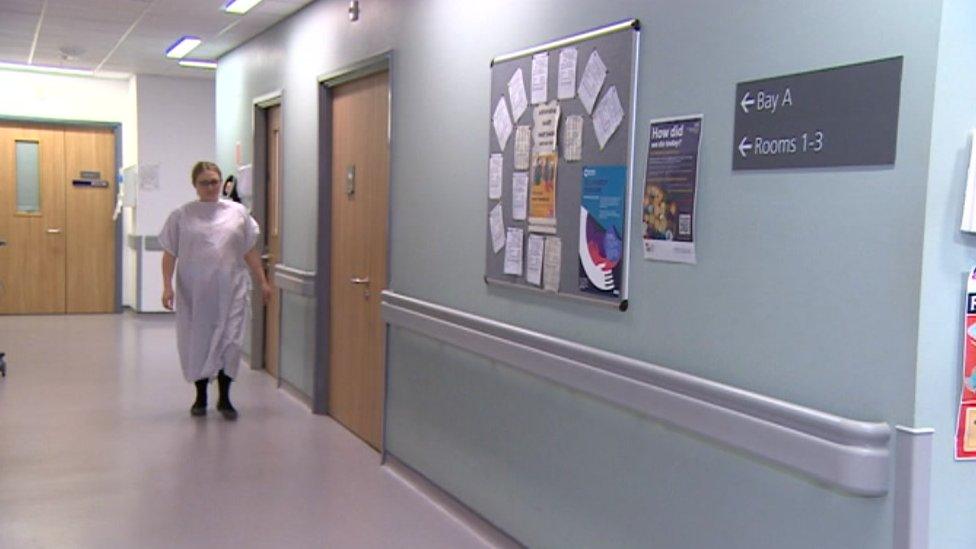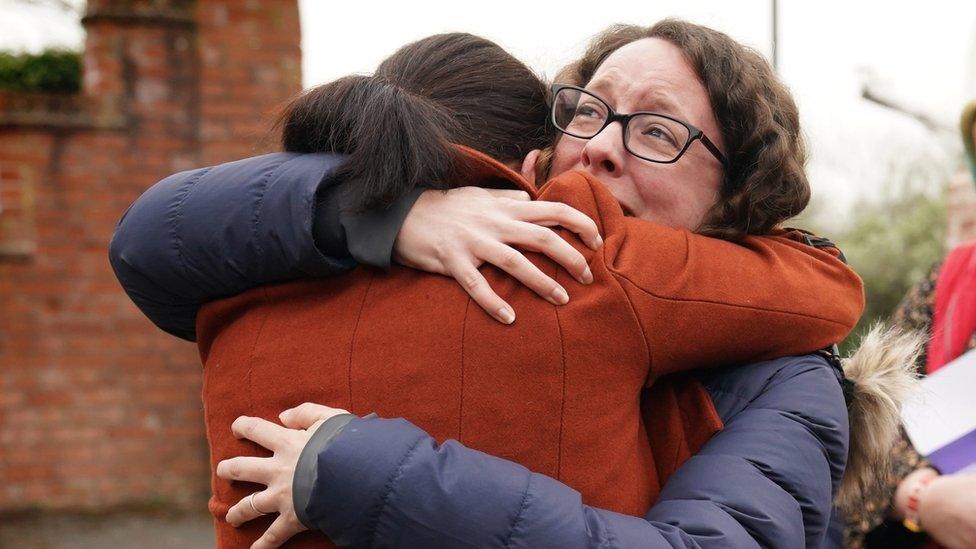Shropshire baby survival rate seeks boost with heart monitors
- Published

Collette Williams was one of the first mothers to use the new monitors
A hospital trust where failing maternity standards were linked to baby deaths has invested in wireless heart monitors to improve survival rates.
The 15 machines at Shrewsbury and Telford Hospitals NHS Trust (SaTH) allow for continual monitoring of mums.
A high-profile inquiry found 201 babies died at the trust due to poor care, with a failure to monitor hearts properly a key factor in many losses.
One patient said the new monitors made her "feel safe and calm".
The trust has spent £300,000 on the machines, training and support.
The Ockenden Inquiry published its final findings in March 2022. SaTH said stillbirth rates had since fallen significantly but deaths among newborns remained higher than expected.

Ms Williams and partner Neil Ward said the monitors helped to put their minds at rest
Collette Williams, a 36-year-old musician, who was one of the first to use the machines, said she had to be monitored after her waters broke during a concert at 31 weeks pregnant.
"I was told that I would need to have a caesarean to deliver my baby prematurely due to heartbeat concerns," the Telford resident explained.
Because the technology was wireless, she said, it allowed her to visit the neonatal unit before going to theatre for surgery.
"This made [my partner and I] both feel safe and calm as we knew what to expect," she said.
"We are so grateful that this level of care exists and that we have had this support. It could have been such a different experience, but it's been a life-changing [one] and we'll be forever grateful."

Ann Marie Lawrence said the trust was always striving to improve
SaTH's director of midwifery, Ann Marie Lawrence, said stillbirth rates had fallen to their lowest level across the trust, but it was always striving for better.
"Wireless monitoring allows labouring women to remain upright, move around and to get into positions that feel comfortable to labour in," she said.
"We know that being active during labour can reduce the experience of pain while also allowing gravity to play its role in helping the baby to descend."
Women who need to be transferred to theatre during labour could now do so without any break in foetal monitoring, she added.
The trust has commissioned a review by the Royal College of Paediatrics and Child Health and the Royal College of Physicians to understand how newborn baby care can be improved.

Wireless monitors allow for greater freedom of movement in patients
Following the independent, government-commissioned inquiry led by senior midwife Donna Ockenden and subsequent reports on the findings, SaTH said it had delivered 88% of the actions required and also all 10 safety actions of the Clinical Negligence Scheme for Trusts, rolled out to support the delivery of safer maternity care.
The NHS Integrated Care Board (ICB) identified that there were 17 neonatal deaths across Shropshire last year which was "significantly high", but added not all may have been at SaTH hospitals - Royal Shrewsbury and Telford's Princess Royal.
Dr Nick White, medical director at the ICB, said the Shropshire, Telford and Wrekin area was one of nine across the Midlands that had a new-born death rate that was 5% higher than the national average, according to figures for 2021.
The Mother and Babies: Reducing Risk Through Audits and Confidential Inquiries report - a national programme investigating maternity mortality rates - showed SaTH's stillbirth rates were higher than the national average but improving.

Follow BBC West Midlands on Facebook, external, Twitter, external and Instagram, external. Send your story ideas to: newsonline.westmidlands@bbc.co.uk, external
Related topics
- Published25 September 2023

- Published30 March 2022
